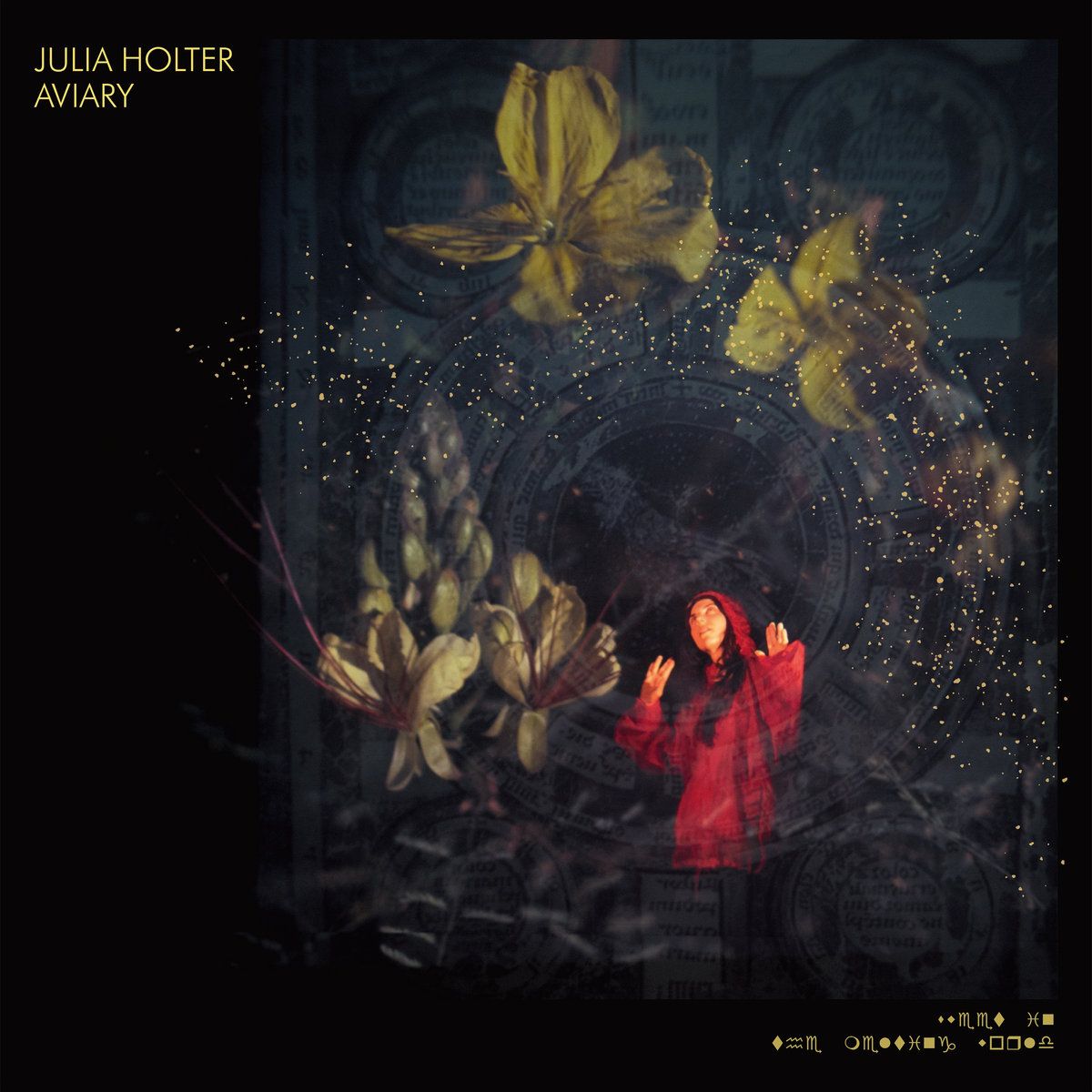Julia Holter returns to her abstract beginnings on ‘Aviary’

Julia Holter
Aviary
Domino Records · October 26, 2018
With Aviary, Julia Holter has released the unquestionable album of the year—and even one of the albums of the decade. She has cemented her place as one of the best composers of our time.
When Have You In My Wilderness was released in 2015, critics were pleased, but puzzled. It seemed as though enigmatic, elaborate Holter (who had once written an album titled Tragedy based on Euripides’ Hippolytus, which she eventually turned into a full-blown stage opera) had traded in her previously lofty shoes to make simpler, more accessible art-pop. Now, with her follow-up release Aviary, Holter has proved that this is far from the case—and that ostentation is what she’s best at. Aviary is a return to Holter’s abstract beginnings, with the added command of her full orchestral power.
Aviary gets its title from a line in Edel Adnan’s short story collection Master of the Eclipse: “I found myself in an aviary full of shrieking birds.” Compared to albums inspired by Greek tragedies and French novellas (Loud City Song), Aviary is surprisingly linked to the present. The album is Holter’s take on current events, and it hovers between being a sanctuary from them and something just as chaotic. It’s impossible to talk about Aviary without mentioning that the album clocks in at 89 minutes long. It’s a dense, complex, winding river of an album; an aspect that has received mixed reviews. While some songs definitely scare off the casual listener with their unnecessary length and disinterest in harmoniousness—the first half of ‘Everyday is an Emergency’ is just dissonant, grating bagpipe tones—this detachment from making something strictly beautiful is actually one of Aviary’s greatest strengths.
What Aviary does remarkably well is world-building. Listening to the album makes you feel like you’ve been whisked away to somewhere else, into this ridiculous and grandiose world that Julia Holter apparently lives in. Holter isn’t afraid to jerk you around between songs or even within the same song, constantly challenging your expectations of what exactly it is that you’re listening to—and she isn’t afraid of you not liking it, either. The biggest criticisms of Holter over the years have been her fake, showy accent, and her ostentatiousness. Here, Holter turns them both up to 11. She often sings in fragmented words, particularly on “Les Jeux to You,” or she chooses to forgo English entirely, such as on “Chaitius” and “Voce Simul.” Holter’s interest in Latin makes you feel as though you’ve been dropped into a Medieval church, a reflection of her interest in pre-modern literary traditions. On “I Would Rather See,” she transforms Anne Carson’s translations of Sappho. The references don’t stop there, and the album carries inspirations both arcane and obtuse, from Medieval French folk songs, Occitan troubadours, and Dante’s Inferno to the movie Blade Runner. “Colligere”—the Latin-to-English translation of which approaches something like the word “collecting”—seems to sum it up perfectly. Aviary is a collection of influences from all over, molded into something uniquely her own.